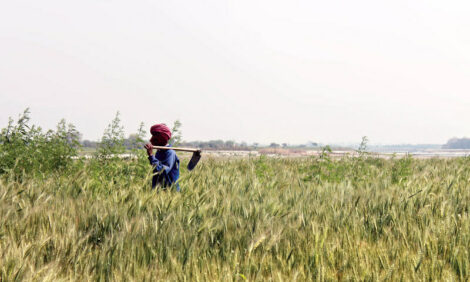



Drought Creates Demand For Imported Dairy Products
RUSSIA - The value of the Russian retail dairy market has been growing steadily with Datamonitor reports forecasting that the market will be worth RUB456bn ($17.9bn) by the end of 2013.The market is led by spreadable fats, which represent almost 40 per cent of the total value, followed by cheese and milk, with a 25 per cent and 23 per cent market share respectively. Wimm-Bill-Dann Foods OJSC is the market leader with 19 per cent share of the market, says Alla Barinova, Manager of the Irish Food Board, Bord Bia, in Moscow.
Sales of butter and cheese are rising due to increased seasonal demand and due to the abnormal summer weather. The summer drought accelerated cattle slaughter rates and reduced feed supplies, which is impacting on milk supplies and productivity. The shortage of fresh milk has made domestically produced butter more expensive and trade sources have noted that consumers are increasingly switching to imported brands, as they are now more competitively priced.
Companies such as Wimm-Bill-Dann have introduced new lines of imported cheeses, under the Granfor brand, in response to the increasing popularity for hard cheeses. Trade sources have noted that there is increased potential for imported cheese, butter and dairy ingredients in the Russian market.
Industry predictions are that the price of dairy products will continue to rise by an average of 10 per cent - 15 per cent this year, with prices forecast to rise further. Imports of skimmed milk powder are forecast to rise to 190,000 tonnes from 60,000 tonnes. The revised forecasts mean that Russia will be a leading global skimmed milk powder importer alongside Indonesia and Mexico.
Russia have also been in discussions with the New Zealand dairy co-operative and a new free trade agreement may be in place next year, allowing the world’s top dairy exporter greater access to the Russian market. US dairy exports, on the other hand, have been banned by Russia for failing to comply with the new Black Sea Customs Union requirements.
The majority of dairy imports however, come to Russia from Belarus. Belarusian exports comprised 30 per cent of Russia’s cheese imports, 46 per cent of butter imports, 75 per cent of milk powder imports and 89 per cent of foreign whole milk purchases, in the first seven months of 2010.
TheCattleSite News Desk


